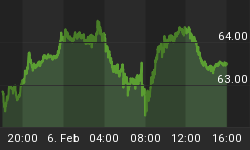On March 5, 2013, Hugo Chávez, one of the most iconic presidents in the world, died at the age of 58. While he was alive, Chávez was a highly controversial figure, calling George W. Bush a drunkard and a "psychologically sick man" and Tony Blair an "imperialist pawn who attempts to curry favor withDanger Bush-Hitler."
Like him or hate him, Chávez definitely had a huge following in Venezuela, as well as the entirety of Latin America. His anti-American and socialistic rhetoric made him an ally of Fidel Castro in Cuba and Ahmadinejad in Iran. Combined with Correa in Ecuador, Fernández in Argentina, and Morales in Bolivia, Chávez was able to make a front in South America against the "evil imperialist gringos."
But with him no longer in the picture, things will change, and cheap Venezuelan oil will be able to flow into the markets, right?
Wrong.
Whoever succeeds Hugo Chávez will be trapped between a rock and a hard place. Venezuela currently has some of the cheapest gasoline in the world; it's costing an average of $1 to fill up one's tank. These low prices are made possible by the enormous amount of fuel subsidies - estimated to be 4.5% of the GDP (for reference, the US Department of Defense spends 4.5% of the US GDP). Any attempts to remove these subsidies will be met with enormous resistance from the population, which has long viewed cheap gas as a birthright.
To make things worse, the production of oil from Venezuela has been steadily decreasing due to the lack of reinvesting back into the oil patch and lack of upgrading the energy infrastructure. Instead of investing in the oil sector, Chávez has been spending most of the money on social programs. This decrease in supply combined with increased demand for oil from a growing population means there is much less oil available for exports.
In fact, since Chávez took power in 1999, Venezuela's oil exports have been cut by half.
Oil provides 45% of Venezuela's revenue, so in order to keep running the country, the government must find a way to get more money out of every barrel that it exports.
And what better way is there than to pass it on to the evil imperialist consumers of the West?
This situation is not happening just in Venezuela, but in many other oil-producing countries: Iran, Kuwait, and Indonesia are just a few examples. It is only a matter of time before these countries conspire in order to raise the worldwide price of crude oil. What will they raise it to?
US$100 per barrel of oil? US$150? US$200?
Whatever it takes to keep the country running and the ruling classes in power.
Will America be spared? According to the latest International Energy Agency (IEA) report, the United States will become self-sufficient in energy by 2035, which means that it will be free from the geopolitical manipulations of oil-producing countries.
Unfortunately for America, this report is flawed and filled with inconsistencies - relying on it to guide your energy investment decisions would likely prove disastrous to your portfolio.
A better bet for your portfolio would be to follow the advice in The 2013 Energy Forecast. It provides an insider's view of two segments of the energy sector likely to provide sizable near-term returns to investors who position themselves now.















